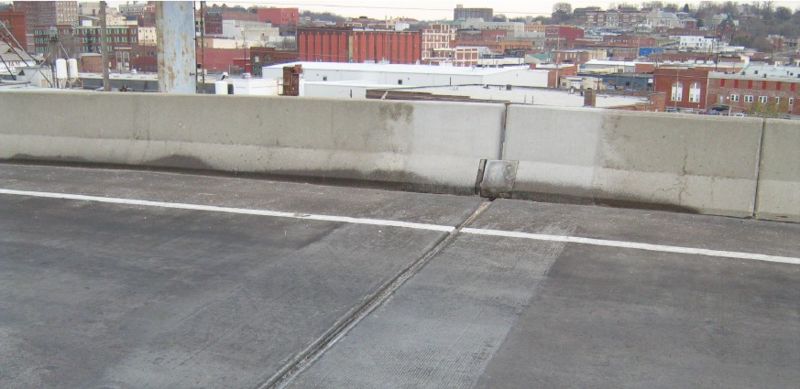1057.4 Laboratory Testing for Sec 1057
This article establishes procedures for Laboratory testing and reporting samples of material to be used in joints for concrete structures, concrete pavement, base, median, median strip, paved approach, curb, curb and gutter, gutter and sidewalk. Refer to Sec 1057 for MoDOT's specifications.
1057.4.1 Procedure
1057.4.1.1 Dowel Bars
All dowel bars shall be tested for tensile and bending properties of plain rounds in accordance with AASHTO M31 Billet Steel. Dowel bars, which are not uncoated shall be tested for mass variations. Test results and calculations shall be recorded through AASHTOWARE Project (AWP).
1057.4.1.2 Tie Bars
Tie bars shall be tested in accordance with EPG 1036.7.1.1 Reinforcing Steel for Concrete - Billet-Steel Deformed Bars. Tie bars, which are to be bent and straightened, shall be tested in accordance with EPG 1036.7.1.1.1 Uncoated Billet-Steel and shall be Grade 40. Test results and calculations shall be recorded through AASHTOWARE Project (AWP).
1057.4.1.3 Concrete Joint Sealer, Hot-Poured Elastic Type
Samples shall be tested in accordance with Specification Sec 1057.1.3 for flow, penetration, resilience, bond, and Asphalt Compatibility. These tests will be completed on every fourth sample from a producer. If any of the tests fail, the producer's next sample will also be tested for the four properties and Asphalt Compatibility. The other samples not subjected to full testing will be tested for flow, penetration and resilience only to determine acceptance. Test results and calculations shall be recorded in Laboratory workbooks or on Work Form "Hot Pour Joint Sealer". Test results shall then be recorded through AWP.
1057.4.1.4 Preformed Fiber Expansion Joint Filler
Samples shall be tested for thickness, compression, recovery, extrusion, density, water absorption, and bitumen content in accordance with AASHTO M213. Test results and calculations shall be recorded through AWP. Bitumen content shall be originally recorded in a Laboratory workbook.
1057.4.1.5 Copper Sheeting
Copper sheeting for flashing shall be tested in accordance with the following methods:
- Percent Copper - ASTM E53
- Thickness and Elongation - AASHTO T68
- Bend Properties - Specification Sec 1057.2.3
Test results and calculations shall be recorded through AWP. Percent copper shall be originally recorded in a Laboratory workbook.
1057.4.1.6 Sponge Rubber
Sponge rubber compound expansion and partition joint filler shall be tested for thickness, compression, recovery, extrusion, and density in accordance with Specification Sec 1057.2.4. Test results and calculations shall be recorded through AWP.
1057.4.1.7 Plastic Joint Compound
Plastic joint compound for vitrified clay and concrete pipe shall be tested in accordance with the following methods:
- Percent Bitumen soluble in trichloroethylene and percent ash - AASHTO T44,
- Penetration - AASHTO T187.
All test data and calculations shall be recorded in Laboratory workbooks. Test results shall then be recorded through AWP.
1057.4.2 Sample Record
The sample record shall be completed in AASHTOWARE Project (AWP), as described in AWP MA Sample Record, General, and shall indicate acceptance, qualified acceptance, or rejection. Appropriate remarks, as described in EPG 106.20 Reporting, are to be included in the remarks to clarify conditions of acceptance or rejection. Test results shall be reported on the appropriate templates under the Tests tab.
